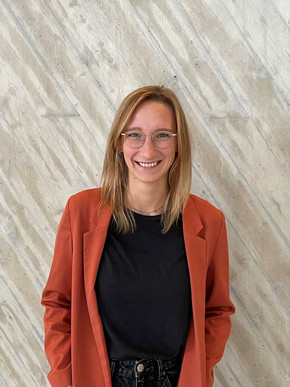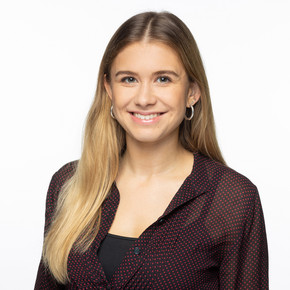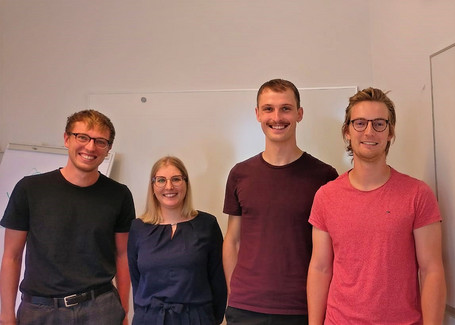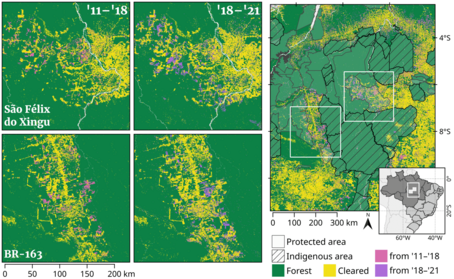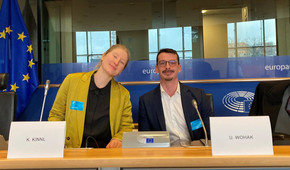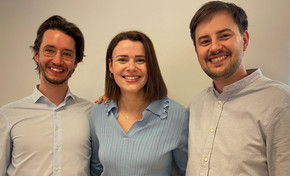News
Defensio Dissertationis of Thomas Wiedenhofer

© VERDINO| Angelika Schiemer
June 2025
On Thursday, June 12 at 4 pm, the Defensio Dissertationis of Thomas Wiedenhofer will take place in the department meeting room D4.2.008. He will present his research on the topic “Essays in Empirical Industrial Organization”.
Doctoral Committee: Klaus Gugler (WU), Philipp Schmidt-Dengler (University of Vienna), Alon Eizenberg (The Hebrew University of Jerusalem).
Defensio Dissertationis of Klara Kinnl
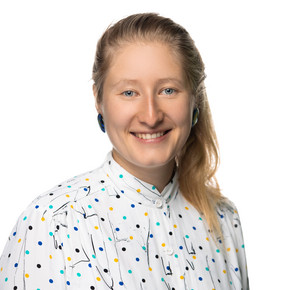
© WU TV
April 2025
On Wednesday, April 23 at 15:00, the Defensio Dissertationis of Klara Kinnl will take place in the department seminar room, D4.2.008.
Klara Kinnl will present her research on the topic „Essays in Public Economics“.
Doctoral Committee: Rupert Sausgruber (WU), Peter Brummund (University of Alabama), and Melis Kartal (WU)
4th Vienna Economics PhD Workshop
We are happy to announce the 4th Vienna Economics PhD workshop which will be held at WU on Friday April 4th from 09:30 - 17:30 (location: WU, Executive Academy , Room EA.0.024 Foyer)
The workshop is hosted by us in cooperation with the Vienna Graduate School of Economics and the Department of Economics and Business at CEU; to encourage exchange between the different PhD Economics students and get an insight into the different research projects.
For more information please have a look here
Study published by our PhD Candidate Lydia Dimitrakopoulou
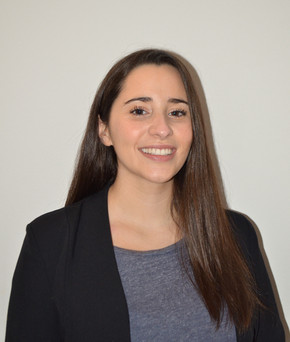
Nov 2024 - Our PhD Candidate Lydia Dimitrakopoulou, along with co-authors Christos Genakos (University of Cambridge), Themistoklis Kampouris (DIW) and Stella Papadokonstantaki (WashU), has published a new study,"VAT Pass-Through and Competition: Evidence from the Greek Islands," in the International Journal of Industrial Organization (open access at https://doi.org/10.1016/j.ijindorg.2024.103110).
This research examines how competition affects VAT pass-through in isolated oligopolistic markets as defined by the Greek islands. Using daily gasoline prices and a difference-in-differences approach, the study analyzes how changes in VAT rates are passed through to consumers in islands with different market structure. The authors find that pass-through increases with competition, going from 50% in monopoly to around 80% in more competitive markets, but remains incomplete.
The research also reveals a rapid rate of adjustment for VAT changes, as well as a positive relationship between competition and the rate of price adjustment. Additionally, products with more inelastic demand exhibit higher VAT pass-through rates.
For further insights, part of this research is also discussed in the article "Competition and Pass-Through: Lessons from the Greek Islands" on the CEPR VoxEU website: Competition and pass-through: Lessons from the Greek islands | CEPR
Welcome to our new PhD Students
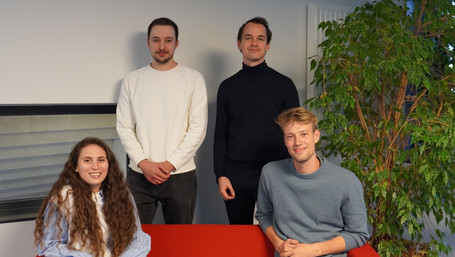
© WU Wien
September 2024 - We are very happy to welcome four new PHD candidates: Sannah Tijani, Maximilian Heinze, Nicolas Göller and Jonathan Fitter (pictured left to right) are joining us from this year onwards.
Welcome to our department and the PhD Label Economics!
Defensio Dissertationis of Nikolas Kuschnig

© WU
July 2024 On Tuesday, July 9 at 17:00, the Defensio Dissertationis of Nikolas Kuschnig will take place in the department seminar room, D4.2.008.
Nikolas Kuschnig will present his research on the topic „Essays on Econometric Methods for Issues in Environmental Economics“.
Doctoral Committee: Jesus Crespo Cuaresma (WU), Bryan Graham (UC Berkeley), Angelo Mele (JH Carey Business School)
Defensio Dissertationis of Melanie Gräser
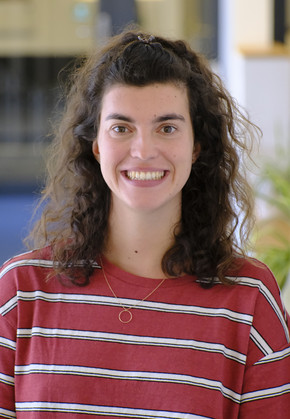
July 2024 Our PhD Candidate Melanie Gräser will present her research on the topic of „Essays in Development Economics“ on Friday, July 5th, 15:00.
The presentation will take place in the seminar room, D4.2.008.
Doctoral Comittee: Ingrid Kubin (WU), Joachim Becker (WU), Peter Brummund (University of Alabama)
Philipp Poyntner won the Hanns Abele Prize!
May 2024 - Congratulations to Philipp Poyntner, for being the winner of the Hanns Abele Prize 2024! The prize, sponsored by the Abele family, for the best dissertation on the topic "scientific foundation of economic policy" was awarded to Philipp Poyntner, PhD for his thesis "Essays on monetary policy".
Defensio Dissertationis of Severin Rapp
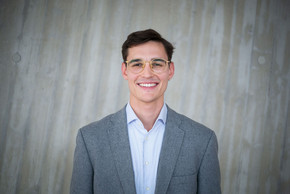
May 2024 - We are happy to announce that our PhD Candidate Severin Rapp will present his research on the topic of "Perspectives on the distribution of wealth - concepts, data and perceptions" on Wednesday, May 29th, 2024 at 10:30. The presentation will take place in the seminar room, D4.1.001.
Doctoral Comittee: Wilfried Altzinger (WU); Jesus Crespo-Cuaresma (WU); Maximilian Kasy (University of Oxford).
New article by our PhD Candidate Lukas Vashold
April 2024: PhD candidate Lukas Vashold together with Prof. Jesús Crespo Cuaresma published the article"A unified modelling framework for projecting sectoral greenhouse gas emissions" in Communications Earth & Environment (Open Access via https://doi.org/10.1038/s43247-024-01288-9). In the paper, the authors use a coherent modelling framework to project greenhouse gas emissions for 173 countries and five main sectors up until 2050 under a business-as-usual scenario.
These projections add to the toolkit available to policy-makers and researcher confronting the challenge posed by climate change, as is exemplified by comparisons with forecasts of countries submitted as part of their climate pledges as well as with trajectories derived from models intensely used in the climate science community.
Part of the research is featured on the World Emissions Clock, an online tool created in cooperation with the World Data Lab in order to visualize the data in an accessible manner and provide it to the broader public. Read the related WU press release here as well as a brief blog at Springer Nature Behind the Paper here.
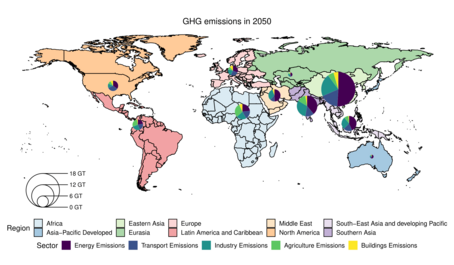
Greenhouse gas emissions by sector and world region in 2050
© Vashold & Crespo Cuaresma, 2024
Defensio Dissertationis of Elisabeth Wurm
April 2024 - We are happy to announce that our PhD Candidate Elisabeth Wurm will present her research on the topic of "Essays in Labor Economics” on Friday, April 19, 2024 at 10:00. The presentation will take place in the department seminar room D4.2.008.
Doctoral Committee: Andrea Weber (CEU), Esther Arenas-Arroyo (WU), Melis Kartal (WU).
Defensio Dissertationis of Oscar Fernandez
March 2024 - Our PhD Candidate Oscar Fernandez will present his research on the topic of "Essays in Quantitative Macroeconomics and Green Finance" on Friday, March 15th, 2024 at 11:00. The presentation will take place in the department seminar room, D4.2.008.
Doctoral Comittee: Jesus Crespo Cuaresma (WU), Katrin Rabitsch (WU), Martin Feldkircher (Vienna School of International Studies).

